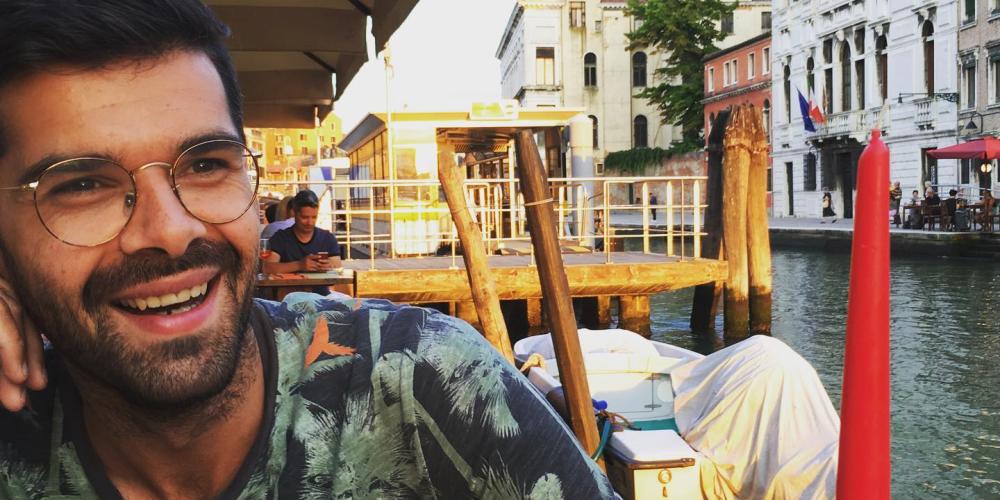
Imran Nawaz is a VUB language and literature graduate, a teacher of history in the third grade of secondary education, and a finalist in the Mister Gay Belgium competition. “I always tell my pupils they should act if they see injustice,” he says. “So it would be hypocritical if I stood on the sidelines myself.”
“There’s a belief that all Muslims are against homosexuality. But my family were the first on the dancefloor at our wedding.”
Imran Nawaz is in Berlin with his pupils when we speak. “I’m going to tell them about my participation in the contest on the way back,” he says. “My colleagues already know and are promoting it, although they were surprised. Until a few months ago I didn’t see myself taking part in a pageant; I believed in the cliché of pageants as vleeskeuring [reducing someone to their physical appearance]. But it quickly became clear to me that the organisation was really looking for a spokesperson and an ambassador for the LGBTQIA+ community. They expect you to spotlight a particular issue and support particular projects. That’s what convinced me.”
Reacting to injustice
“In legal terms, we can’t complain in Belgium. For our community there are few better countries to live in. Yet it’s still the case that more than half of LGBTQIA+ people don’t dare to hold hands in the street and more than one in seven experiences violence. There are worrying signs all round the world when it comes to intolerance, against all minorities.
“I always tell my students: when you see injustice, you have to act. So it would be hypocritical if I didn’t dare to do so myself. I can watch from the sidelines or I can take action. The opportunity now presents itself to do just that.”
Religion and orientation
“Globally, religion is still being used to persecute minorities; this is a reality. And there are people being rejected by their own families because of their sexuality. But I want to show that there are good things, too. My dad is Muslim and my mum Christian. It took a long time before I dared to tell my family about my orientation, because the idea prevails that all Muslims are against homosexuality. But it turned out that they had no problem at all and they immediately embraced me. My husband too, as soon as he came into the picture. They were the first on the dance floor at our wedding.
“I’ve also had positive experiences from my teaching experience. I’ve taught in multicultural contexts and students have always known that I’m married to a man. There have never been any difficulties with that. I think that’s partly because I’m open to conversation and want to hear their thoughts. I listen to their concerns and frustrations. If you take the time to get to know each other, you learn, for example, that I’m more than someone who loves men and that students are not just Muslim. That’s how you discover common ground and build mutual respect. You have to dare to look further and start a conversation.”
Believe in hope
“I’m realistic; I know I’m not going to change the world in three months. But I do believe there can be hope. I’ve planned a number of meetings within the religious sphere, with a bishop and an imam who were very willing to meet. The goal for the coming months is to make that more concrete and to create a public forum for these conversations. The voices of spiritual leaders can have a big impact and are important in opening the debate, so I want to work on projects that build a bridge between religion and our community. It’s important that people feel safe and can embrace both aspects of their identity. They can both live their faith and be LGBTQIA+ at the same time.”